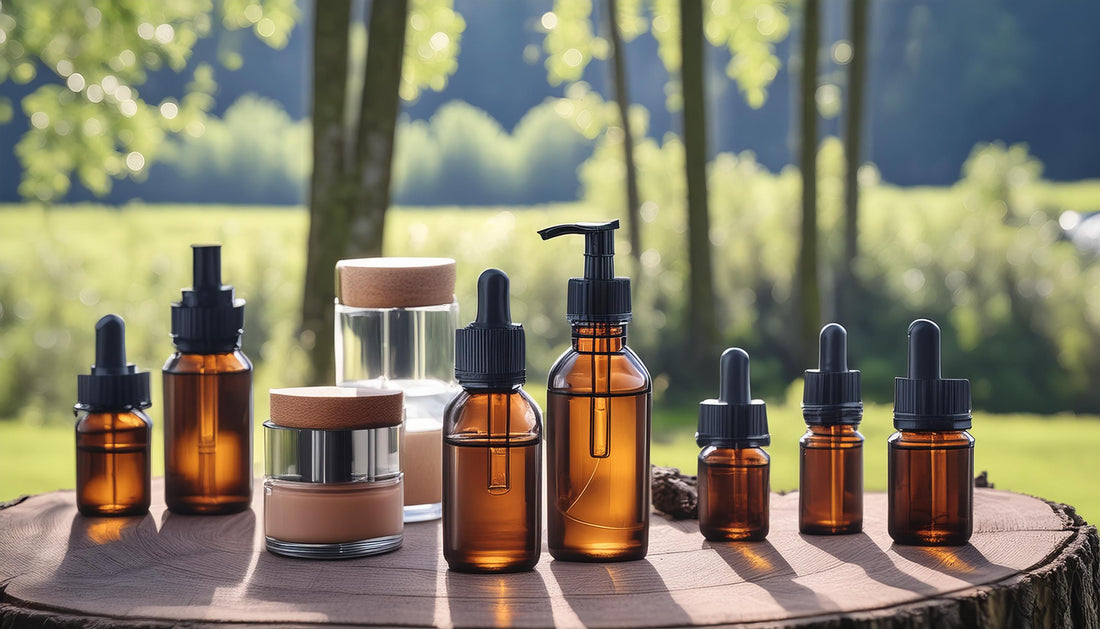
The Myth of "Natural" Cosmetics: Why Natural Does Not Always Mean Better
Share
In the world of beauty and skincare, "natural" has become a buzzword synonymous with purity, health, and overall goodness. It conjures images of lush forests, blooming flowers, and untouched landscapes, promising products that are gentler and safer for our skin. But as enticing as the natural label sounds, it is essential to unpack the reality behind it. Just because a cosmetic product is natural doesn't automatically mean it is better or safer. Here are some reasons why:
1. Natural Ingredients Can Cause Allergies and Irritation
Many people believe that natural ingredients are less likely to cause skin reactions. However, numerous natural substances can trigger allergies, irritation, and other adverse reactions. For example, essential oils like lavender, tea tree, and peppermint, while beneficial in many ways, can cause contact dermatitis in some individuals. Similarly, botanicals like chamomile and calendula, known for their soothing properties, can cause allergic reactions in sensitive individuals.
2. Lack of Standardisation and Consistency
Natural ingredients can vary significantly in quality and efficacy. Factors such as the source, growing conditions, and harvesting methods can influence the chemical composition of natural ingredients. This variability can lead to inconsistencies in product performance. In contrast, synthetic ingredients are formulated in controlled environments, ensuring a consistent quality and effectiveness in every batch.
3. Potential for Contamination
Natural ingredients can be more prone to contamination by microorganisms such as bacteria, yeast, and mold. This is particularly concerning when these ingredients are not processed correctly. Synthetic ingredients, on the other hand, are often more stable and less likely to support microbial growth, which can enhance the safety and shelf life of cosmetic products.
4. Misleading Marketing
The term "natural" is not strictly regulated in the cosmetics industry. This means that products labeled as natural can still contain synthetic preservatives, fragrances, and other non-natural components. Moreover, the presence of a few natural ingredients does not guarantee the overall safety or efficacy of the product. It's important to scrutinize the entire ingredient list rather than relying solely on the natural label.
5. Effectiveness and Scientific Validation
Many synthetic ingredients used in cosmetics have undergone rigorous scientific testing and have a well-documented history of safety and efficacy. For instance, ingredients like hyaluronic acid, retinoids, and certain peptides are synthesized to enhance their performance and stability, offering reliable results that natural ingredients may not always provide.
6. Sustainability Concerns
While natural ingredients might seem eco-friendly, their cultivation and harvesting can sometimes have adverse environmental impacts. For example, the over-harvesting of certain plants can lead to deforestation and loss of biodiversity. In contrast, synthetic ingredients can be produced sustainably in laboratories without depleting natural resources.
Conclusion: Balance and Informed Choices
In the debate between natural and synthetic ingredients, the key is balance and making informed choices. It is not about choosing one over the other but understanding the benefits and drawbacks of each. Consumers should focus on the safety, efficacy, and suitability of the product for their skin type rather than being swayed by the natural label alone.
At the end of the day, the goal is to find products that work well for your skin, meet your needs, and align with your values. Whether a product is natural or synthetic, its quality and performance are what truly matter.
Remember, "natural" doesn't always mean better. Educate yourself, read ingredient lists, and choose products based on their merits, not just their marketing claims.

